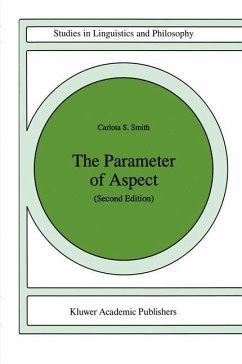
How Words Mean
Lexical Concepts, Cognitive Models, and Meaning Construction

PAYBACK Punkte
36 °P sammeln!
How Words Mean introduces a new approach to the role of words and other linguistic units in the construction of meaning. It does so by addressing the interaction between non-linguistic concepts and the meanings encoded in language. It develops an account of how words are understood when we produce and hear language in situated contexts of use. It proposes two theoretical constructs, the lexical concept and the cognitive model. These are central to the accounts of lexical representation and meaning construction developed, giving rise to the Theory of Lexical Concepts and Cognitive Models (or LC...
How Words Mean introduces a new approach to the role of words and other linguistic units in the construction of meaning. It does so by addressing the interaction between non-linguistic concepts and the meanings encoded in language. It develops an account of how words are understood when we produce and hear language in situated contexts of use. It proposes two theoretical constructs, the lexical concept and the cognitive model. These are central to the accounts of lexical representation and meaning construction developed, giving rise to the Theory of Lexical Concepts and Cognitive Models (or LCCM Theory). Vyvyan Evans integrates and advances recent developments in cognitive science, particularly in cognitive linguistics and cognitive psychology. He builds a framework for the understanding and analysis of meaning that is at once descriptively adequate and psychologically plausible. In so doing he also addresses current issues in lexical semantics and semantic compositionality, polysemy, figurative language, and the semantics of time and space, and writes in a way that will be accessible to students of linguistics and cognitive science at advanced undergraduate level and above.













